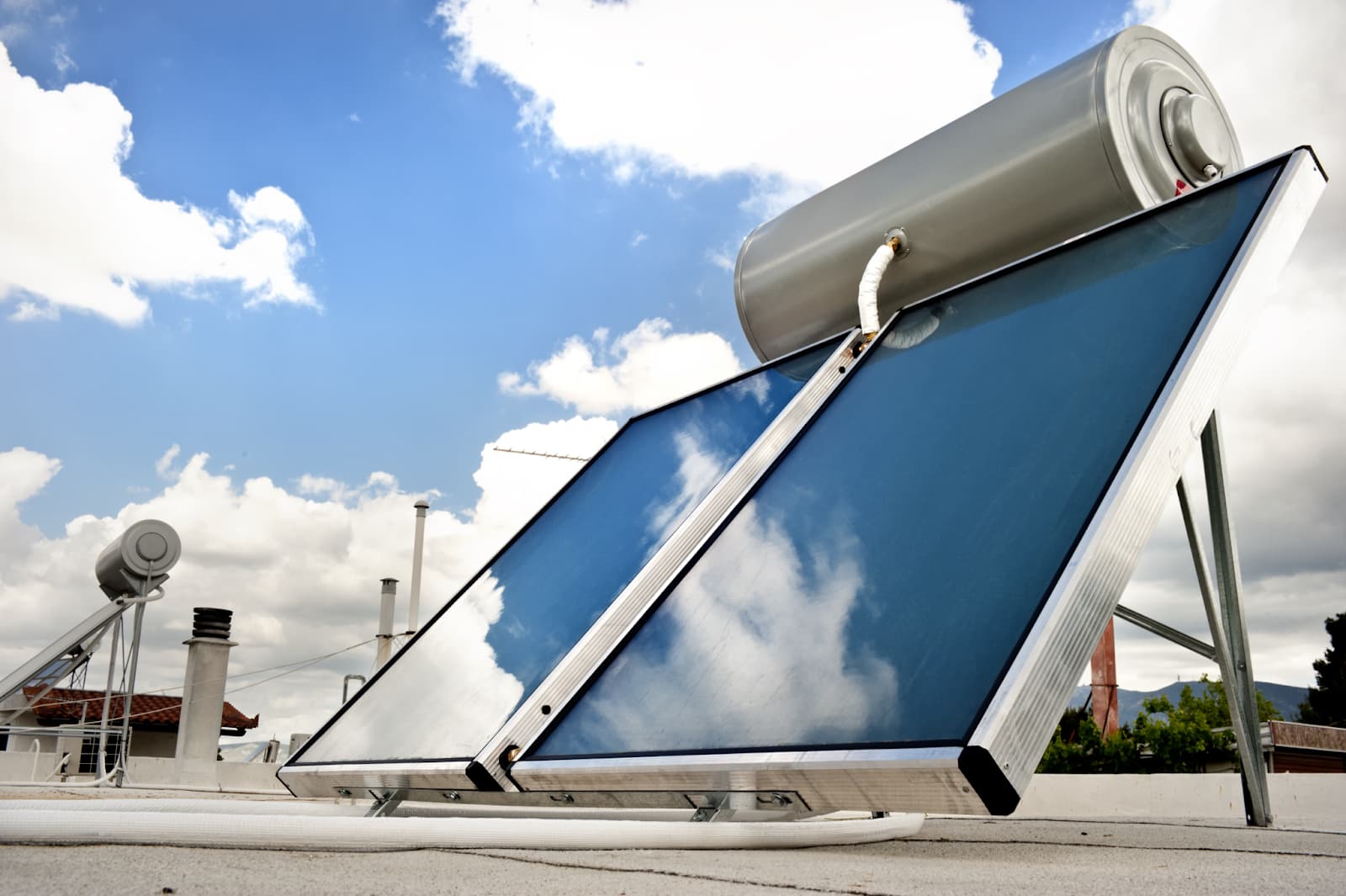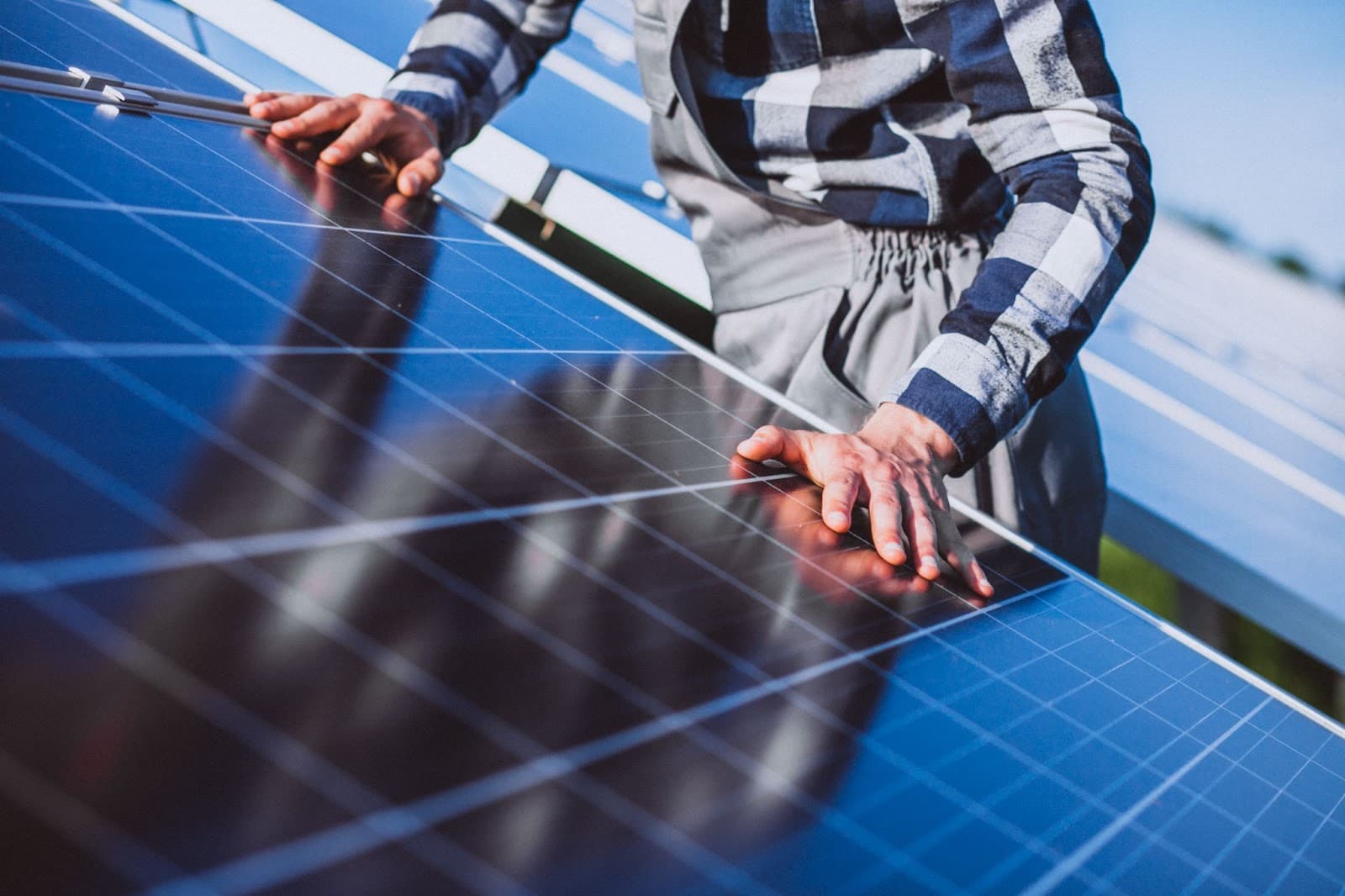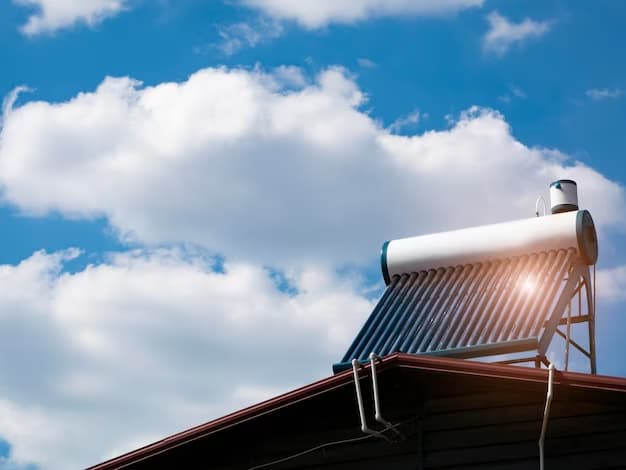Commercial Solar Water Heater: Guide For You
In an era of environmental consciousness and rising energy costs, many commercial building owners are embracing renewable energy sources. Commercial solar hot water systems have emerged as a sustainable solution that allows businesses to curtail and manage their long-term energy expenses effectively.
Solar hot water systems, also known as solar thermal hot water systems, have gained widespread popularity across residential and commercial settings. This comprehensive article delves into the realm of commercial solar water heaters, unraveling their benefits and addressing essential FAQs for those considering their adoption.
How Commercial Solar Hot Water Systems Work
Solar hot water systems are designed to harness sunlight energy and convert it into heat. These systems exhibit exceptional efficiency during the summer when they can convert up to 80% of incident solar energy into heat. In contrast, during the winter, approximately 20-25% of energy conversion is achieved.
These systems function by preheating water before it enters a conventional hot water tank, making them well-suited for providing hot water for household consumption. Additionally, powerful solar water heating systems can cater to substantial water heating needs, such as those required for agricultural purposes like milk production.
Types of Solar Hot Water Systems
Solar hot water systems are broadly categorized into two types:
- Active System: Active systems employ a pump to circulate water within the system. They offer significant energy cost reductions, with potential savings of up to 80%. Active systems can be further classified into direct circulation (open loop) and indirect circulation (closed loop) systems.
- Passive System: Passive solar hot water systems utilize natural convection instead of a pump for water circulation. They are cost-effective to install, boast quick payback periods (typically 3 to 5 years), and can be highly reliable and durable. Passive systems are less efficient than active systems but still offer substantial cost reductions, up to 75%. Subcategories of passive systems include thermosiphon and integrated collector (storage passage) systems.
Collectors: Flat Panel vs. Evacuated Tube
Solar hot water systems employ two main types of collectors:
- Flat Panel Solar Collector: Flat plate solar collectors are suitable for budget-conscious individuals in frost-free regions. These systems feature copper pipes passing through a collector covered with glass. The hot water generated is typically directed back into a ground-based storage tank. While cost-effective, they are not frost-resistant.
- Evacuated Tube Solar Collector: Evacuated tube solar systems excel in efficiency and frost resistance, making them ideal for regions with sub-zero temperatures. These systems can capture heat even on overcast days, offering superior performance, especially in low-light conditions during early mornings and late evenings. Evacuated tube systems consist of two glass tubes, forming a vacuum-sealed space between them. A circulation pump directs water through copper pipes within the tubes, heating the water. The well-insulated storage tank ensures that heated water remains hot for an extended period.
Applications of Solar Hot Water Systems
Commercial solar hot water systems find diverse applications across various industries, aiding businesses in reducing their utility expenses. Some common applications include:
- Breweries and Wineries: Solar hot water systems are employed to cut costs associated with equipment cleaning and process heating.
- Cafeterias and Restaurants: These establishments rely on solar hot water to fulfill daily hot water demands, from kitchen operations to dishwashing.
- Dairy and Agricultural Farms: Farms consume substantial quantities of hot water, and solar hot water systems help mitigate the energy costs associated with water heating.
- Gyms and Spas: Solar hot water systems supply heated water for pools, Jacuzzis, and showers, highlighting a commitment to energy conservation.
- Laundromats, Hotels, and Laundry Facilities: Large-scale water heating requirements for laundry facilities are efficiently met by solar thermal systems.
- Solar Air Conditioning: Solar energy can also be harnessed for cooling purposes using absorption chillers, emphasizing the versatility of solar systems.
Advantages of Solar Hot Water Systems
Commercial solar heating systems offer numerous advantages, including:
- Eco-Friendly: Solar water heaters produce no greenhouse gas emissions and utilize clean energy, contributing to a sustainable environment.
- Cost-Effective: Solar thermal systems harness the sun’s energy efficiently, resulting in potential energy bill savings of up to 38%, depending on hot water usage.
- Good Return on Investment: Solar panel installations offer a remarkable return on investment, lasting for at least 30 years while paying for themselves in as little as 3 to 5 years.
- Tax Credit: Government incentives, including federal tax credits, are available to further reduce the cost of solar water heaters, making them a financially sound choice.
Video Guide
To finally answer all your questions, we have prepared a special video for you. Enjoy watching it!
Comparison Table
| Pros | Cons |
|---|---|
| 1. Environmentally friendly energy | 1. High initial installation costs. |
| 2. Energy cost savings (up to 38%) | 2. Dependence on sunlight availability. |
| 3. Short payback period (3-5 years) | 3. Requires maintenance and servicing. |
| 4. Eligible for federal tax credits | 4. Potential for freezing in cold climates. |
| 5. Increased property value | 5. Requires ample space for solar collectors. |
Conclusion
Commercial solar water heaters stand as a beacon of sustainable heat generation, offering businesses an eco-friendly and cost-effective solution. With applications spanning various industries and a range of advantages, these systems pave the way for a greener and financially prudent future.
Incorporating a commercial solar hot water system not only curtails energy expenses but also signifies a commitment to environmental preservation. As businesses seek ways to reduce their carbon footprint and operational costs, solar water heating emerges as a compelling choice, promising long-term benefits for both the environment and the bottom line.
FAQ
A commercial solar hot water system is a renewable energy solution that harnesses sunlight to heat water for various applications in commercial settings, such as heating water for buildings, industrial processes, or agricultural use.
These systems use solar thermal collectors to capture and convert sunlight into heat energy. This heat is then transferred to water, which can be used for tasks like space heating, domestic hot water, or industrial processes.
Commercial solar hot water systems offer several advantages, including significant energy cost savings, reduced greenhouse gas emissions, eligibility for tax credits, and a quick return on investment. They are also environmentally friendly and have a long lifespan.
While they work best in regions with ample sunlight, commercial solar hot water systems can be adapted for various climates. Anti-freeze solutions and insulation can be used to prevent freezing in colder regions.









